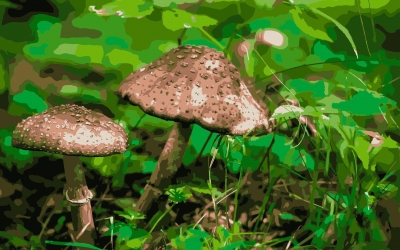
Essentially, mycology is the study of fungi. Here, mycologists directly focus on the taxonomy, genetics, application as well as many other characteristics of this group of organisms.
Fungi are eukaryotic organism which belong to their own kingdom. Until advances in DNA technology, it was assumed that fungi were an offshoot of the plant kingdom. DNA and biochemical analysis has revealed that fungi are a separate lineage of eukaryotes, distinguished by their unique cell wall made of chitin and glucans which often surrounds multinucleated cells.
A specialized field of mycology is mycotoxicology, or the study of the toxins produced by mushrooms. Typically, a mycotoxicologist has a doctorate degree in biochemistry or organic chemistry, or a medical doctorate with concentrations in mycology and toxins. Fungi produce a variety of chemicals which have toxic effects on all kinds of organisms. Humans have eaten mushrooms since the earliest hunter-gatherers, but many mushrooms remain highly toxic. Other compounds found in mushrooms have potentially beneficial properties which could be used in medicine. Many mycotoxicologists work for pharmaceutical companies, trying to develop new drugs based on these compounds.
Picture Credit : Google




